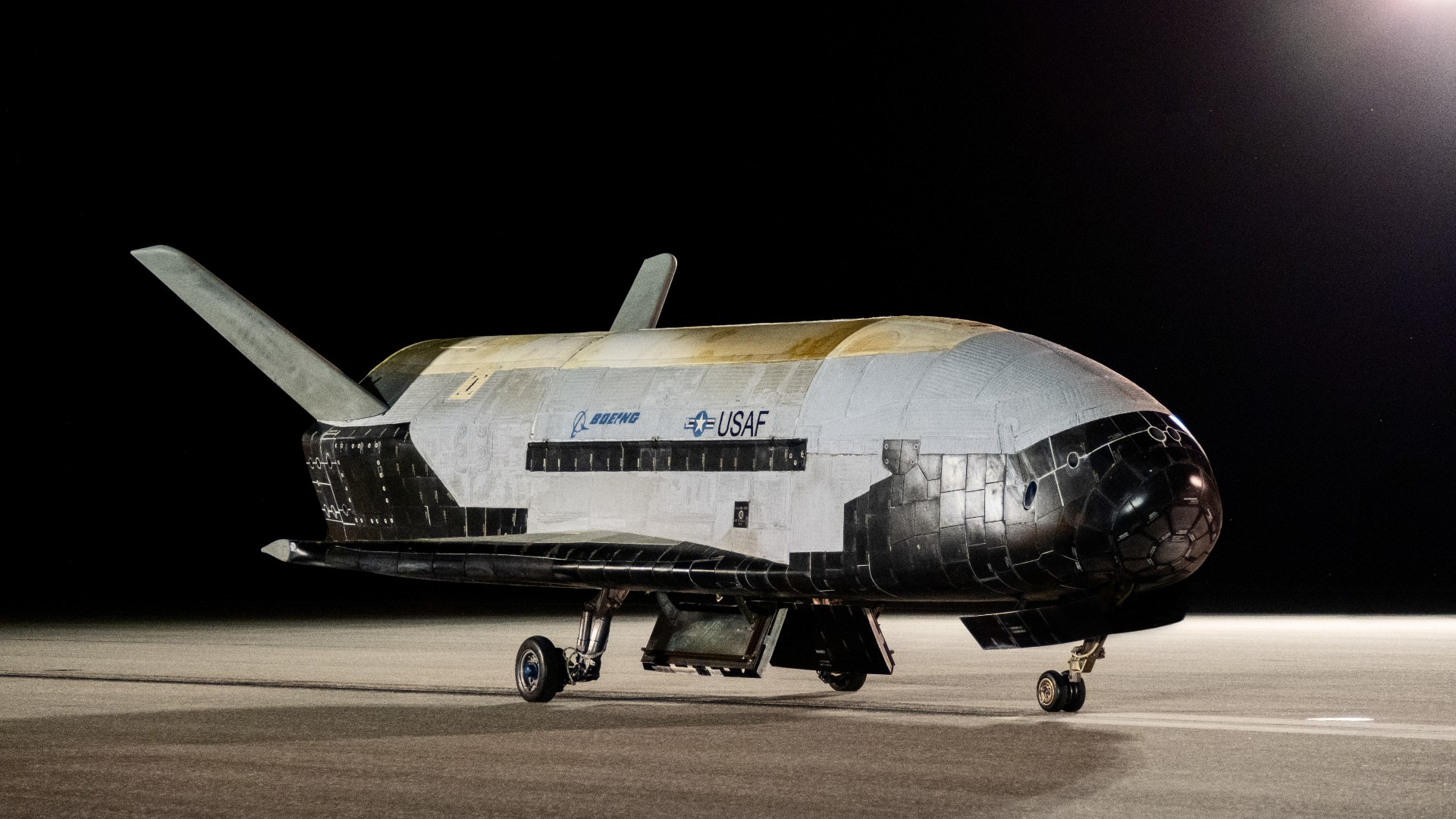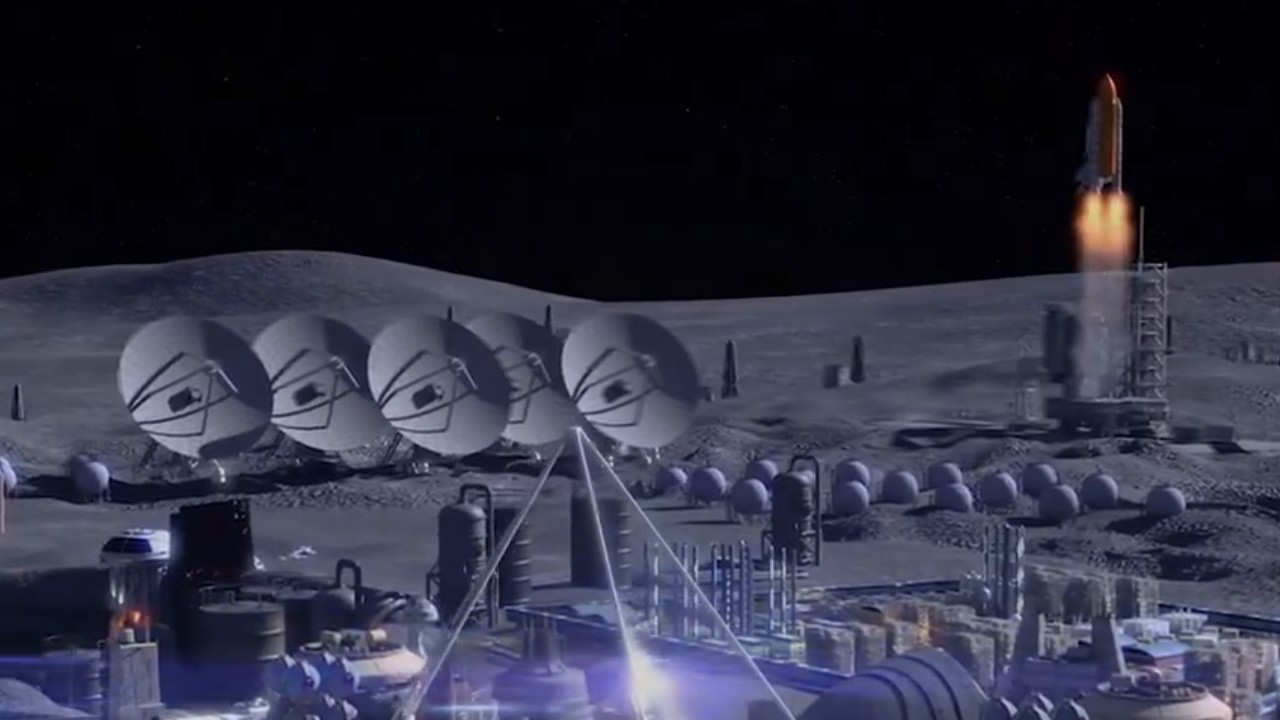
Donald Trump's approach to US space policy could throw up some surprises, especially with Elon Musk on board
What can be expected of a second Trump administration on space policy? In short, a mixture of continuity and change.

What can be expected of a second Trump administration on space policy? In short, a mixture of continuity and change. There will be much continuity across military, civil and industrial space policy as these rarely diverge between political parties. Changes usually involve minor or incremental bureaucratic shifts.
Nevertheless, Trump’s swooning speech embracing Elon Musk, along with the SpaceX founder’s appointment to lead a new department of government efficiency could indicate a different approach to the industrial and human spaceflight aspects of space policy.
Illustrating the potential for continuity, the increasing commercialization of NASA projects and services under the first Trump administration was actually the result of policies initiated during the Obama years. Changes, such as Trump’s striking establishment of the US Space Force and the re-establishment of US Space Command in 2019, were mostly bureaucratic and organizational. They did not fundamentally alter US military space capabilities.
The US has continued decades-long projects such as the modernization of GPS and the development of sophisticated systems to, among other things, identify, monitor, track and follow objects in space – from satellites to debris. These systems include highly maneuverable spacecraft, including the X-37B spaceplane and the GSSAP and Silent Barker satellites.
Related: NASA chief says talks between Elon Musk, Vladimir Putin would be 'concerning'
Even the US Artemis program to return humans to the moon is a continuation of the first Trump administration’s grandiose vision. The Biden administration did not undo it and furthered other longer-term space policies such as transferring more space tracking duties from the Pentagon to the civilian Department of Commerce.

Moving some space tracking duties away from the military is more conducive to developing a Space Traffic Management regime, which should reduce the risks of accidental collisions in outer space. This was the focus of a document called Space Policy Directive-3, issued by the first Trump administration in 2018.
Get the Space.com Newsletter
Breaking space news, the latest updates on rocket launches, skywatching events and more!
Still, there are questions about what changes or uncertainties can be expected. The space journalist Marcia Smith notes that Trump’s disposition towards Artemis, SpaceX and Elon Musk and Mars exploration could see more funds funneled into US human spaceflight programs.
This may be at the further expense of Earth and atmospheric sciences at NASA and the National Oceanic and Atmospheric Administration (NOAA), which have been cut during the Biden era.
Efficiency drive
Vice-president-elect J.D. Vance will chair the National Space Council, which develops policy on civil, commercial, international and national security. Many of the first Trump administration’s space policy successes can be traced to the council. Given the influence Musk seems likely to have in the new administration, the National Space Council could be seen as duplicating or being in conflict with the objectives of SpaceX’s founder.
Musk will co-lead the department of government efficiency, which will “dismantle government bureaucracy” and “slash excess regulations”, among other things. So could the council become a casualty of these drives? If it survives, its future potential depends on who is named as the executive secretary, a position that has significant power.

If the council becomes purely industry driven and shaped by personal rule, it could destroy a balance struck during the first Trump administration between enhancing US space industry and performing as a collaborative leader within the international community. Future policy may continue reducing perceived and real regulatory burdens on the commercial space sector and international partnerships.
International relations
On the international front, there’s uncertainty over whether a US ban on the testing of weapons that can destroy satellites will survive this Trump administration. These are known as direct-ascent kinetic-energy anti-satellite (Asat) weapons.
Neither the Obama, first Trump, nor Biden administrations oversaw an Asat test, which often involve launching missiles from Earth to intercept and destroy a satellite in orbit, despite Indian and Russian tests in 2019 and 2021, respectively. The Asat test ban declared by vice-president Harris in 2022 effectively formalised a longstanding bipartisan approach.
Revoking the ban could undermine the US’s international position in the development of international norms and regulations in space, as many other states have agreed to the moratorium. The test ban has provided much-needed momentum into UK-led discussions at the UN general assembly and an Open Ended Working Group that aims to identify common threats and responsible behaviour in outer space. If the Asat test ban is rescinded, that momentum could be undone.
It could also return the UN to a decades-long logjam over a Russian and Chinese-sponsored draft treaty that aims to control the use of weapons in space. Critics say the draft treaty is full of loopholes and it is opposed by the US and UK. However, US withdrawal from the Asat test ban would be consistent with Trump’s rhetoric on offensive space operations found in Space Policy Directive-4.
Contrary to the bellicose rhetoric, the first Trump administration drove more international involvement and cooperation in its Artemis lunar exploration program. It is unlikely that the new Trump administration will seek to withdraw from the Outer Space Treaty (OST) of 1967, which governs the exploration and use of bodies such as the Moon, because the Artemis program explicitly reinforces key provisions of the OST. The US lunar program does this through the Artemis Accords, a set of principles designed to enable the peaceful and sustainable use of space.

With 47 signatories – including India and several developing states – the Artemis Accords show a growing global acceptance of America’s longer-term exploration plans for the Moon, as well as a belief in the continuing value of the OST.
Undermining the OST and Artemis’ international dimensions would undercut an important response to China’s own pursuit of international support for its lunar exploration program – the International Lunar Research Station.
The real question will be whether the Trump administration can maintain the renewed interest in US space leadership that goes beyond leading in metrics and numbers and seeks to secure a long-term vision of space based on US leadership rather than dominance. The current US approach, found in initiatives such as the Artemis Accords, has been a significant shift from the early 2000s approach that eschewed multilateral discussions of norms and rules of any type.
However, Trump’s penchant for fiery rhetoric, spontaneous announcements, which may be shaped by industrial interests and the Martian gaze of Elon Musk, as well as alienating US allies, could easily undermine these efforts. Under the second Trump administration, there is a continued opportunity to make advances in space policy at both the domestic and international levels, but any such advances are likely to be in spite of Trump rather than because of him.
Join our Space Forums to keep talking space on the latest missions, night sky and more! And if you have a news tip, correction or comment, let us know at: community@space.com.

Before joining HyPIR at Leicester in January 2018, I was a Lecturer in Defence Studies at the Defence Studies Department, King’s College London, which is embedded at the Joint Services Command and Staff College, Shrivenham. Prior to that, I was a Teaching Fellow at the Department of International Politics, Aberystwyth University, where I also worked for my various degrees. During my PhD at Aberystwyth University I was also a Visiting Scholar at the Space Policy Institute in Washington, D.C. in Spring 2014. My primary research interests concern the politics and security in outer space.
I am currently working on turning my doctoral dissertation on spacepower theory into a monograph, and organising a journal special issue on various approaches to astropolitics.
I am an occasional guest on BBC radio and TV news and current affairs programming, such as Radio Cymru, Radio Wales, and S4C to provide expert analysis on modern warfare and security issues in both Welsh and English languages. I have also featured on the podcasts The Dead Prussian and The Space Show.
-
Dave It is a intriguing possibility that Trump may side with the bipartisan members of congress on more disclosure about UAP's. The congressional meeting 2 days ago was the second meeting concerning UAP disclosure in congress. Unveiled in that meeting by Mr. Gold is the role that NASA could take if disclosure from both the Pentagon and the DOD was uncovered. NASA has enormous amounts of data that could help in the search for UAP's and with the help of AI even more UAP's of interest could be discovered. This is exciting news as bipartisan members will stop at nothing until the truth is ultimately revealed.Reply -
Classical Motion I’ll bet if you and your fellows were given unrestricted access for 1 yr……...all would be disappointed. There isn’t anything there. The military is coy, for PR and funding. And concern for public concern. Needed research. New dangers.Reply
It’s the same fiddle.
If there were anything to it, all security and military services would be all over it. And other countries too.
That could not be hidden. -
Thermoman Reply
Elon Musk and NASA in regards to space flight is a massive waste of funds and the worlds resources ! Might as well smoke a cigerette and watch your money go up in smoke .Admin said:What can be expected of a second Trump administration on space policy? In short, a mixture of continuity and change.
Donald Trump's approach to US space policy could throw up some surprises, especially with Elon Musk on board : Read more









